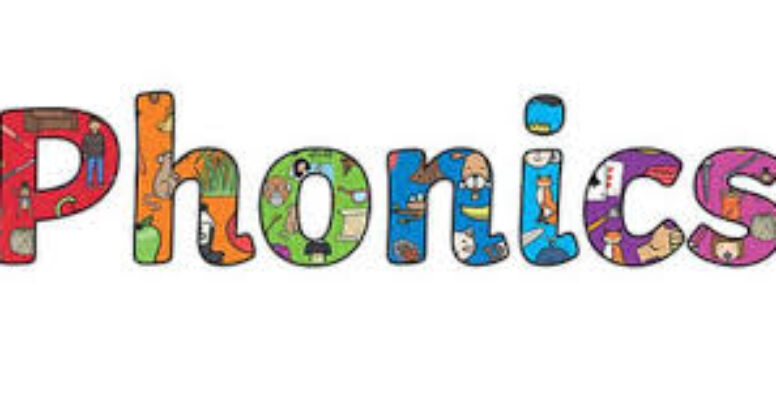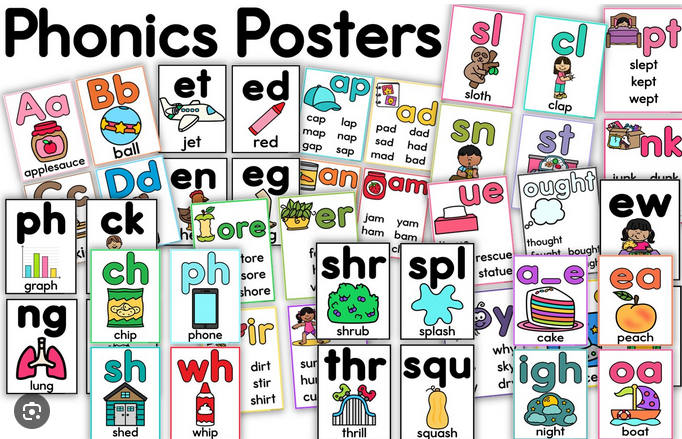
Are You Illiterate?
Phonics is the common sense method of teaching reading by focusing on the sounds that written letters make. Students first memorize the sounds (phonemes) of each letter or letter group (graphemes).  Then, they practice “sounding out” words by breaking them down into these sounds and blending them together to read the word. For example, they learn that “c” makes a /k/ sound, “a” makes an /a/ sound, and “t” makes a /t/ sound. Putting these together, they get the word “cat.”
Then, they practice “sounding out” words by breaking them down into these sounds and blending them together to read the word. For example, they learn that “c” makes a /k/ sound, “a” makes an /a/ sound, and “t” makes a /t/ sound. Putting these together, they get the word “cat.”
Starting in the 1980s, a method called “whole language” began to replace phonics in many schools. Whole language focused on recognizing words as whole units rather than sounding them out, encouraging students to guess words based on context. It was popular because it didn’t involve the repetition and drills needed to teach phonics, and it was thought that children would naturally learn rules through exposure.
My mother, an award-winning elementary school teacher, called it “bullshit,” believing it to be a scam sold to overworked teachers without any scientific support or merit. She refused to use it, even buying phonics materials with her own money, and when she died, over 200 former students attended her memorial to give thanks.
Now, the science has been done. Phonics works. So-called “whole language” does not.
If you weren’t taught phonics—learning to sound out unfamiliar words and look up meanings as you read—there’s a good chance you are part of a growing group of American adults who are functionally illiterate–able to read, but not well enough to fully understand the laws, technology, or information needed to succeed today.
To be clear, that doesn’t mean you aren’t smart. But if you can’t read, say, the instructions on a tax form, or a newspaper article targeted at a general audience and understand most or all the words and come away feeling you have understood it, you might have room for improvement. You might have room to change your life in way you frankly, can’t imagine.
And the good news is, you can. Phonics is everywhere, so even if you weren’t taught properly, you most likely know all the sounds, and if you don’t, the Internet, book stores, and educational supply stores are ready with everything you could possibly need to bridge the gap. Then it’s just a matter of practice. If you didn’t read as a child, start now. Go to your local library, find the children’s section, and look for books for early readers. You will find everything from alphabet books to chapter books, and on into middle school books and youth novels. My kids went through whole series checked out from the library, and you can too–for free.
And once you run out of children’s books that still challenge you, check out that rest of the library. There are books on everything from cars to rockets to history to law, whatever your interests may be.
And there are books and articles about the law, about government, about every career you can imagine, and enough novels to entertain you for a dozen lifetimes.
If you didn’t get the reading education you should have as a child, or if someone you care about didn’t, it’s never too late to open a whole new chapter in life–pun intended. And it really isn’t that hard. Just start with phonics–even if that means a community adult education class–and then practice.

My mother taught me to read as I was learning to talk. I don’t really remember much before reading. She took me with her to work when I was small, and when she had to go places she couldn’t take me, she left me with my grandparents or with friends. There were books everywhere. There were always interesting things to play with and things to do. I spent a lot of time playing by myself, in my grandparents’ house while all the adults were working in the restaurant across the alley, or actually on the floor of the back room of the restaurant, makings toweres of take-out and pizza boxes, and making dinosaurs and rocketships and little cities out of old bread dough, or in the jungle of exotic plants out the side door.
The first clear, complete memory I have of reading: My cousins were visiting L.A. from Ohio. I read from a Little Golden Book to demonstrate, with the other older kids around. I clearly remember the /worry that the magic would fail/ mixed with the confidence of /why should it?/ because of success before that. They were all very excited, and /I liked that/.
In college I met a boy whose mother was a psychologist, into Waldorf methods. He told me that it ruins children’s development to be forced to learn to read and do numbers before their minds are ready. I don’t remember exactly, but I think he said that for reading that was six or seven years old, to just start out with letters and sounds. I told him about my mother. I said, “Do you think that I was ruined?” He said, “Yes!”